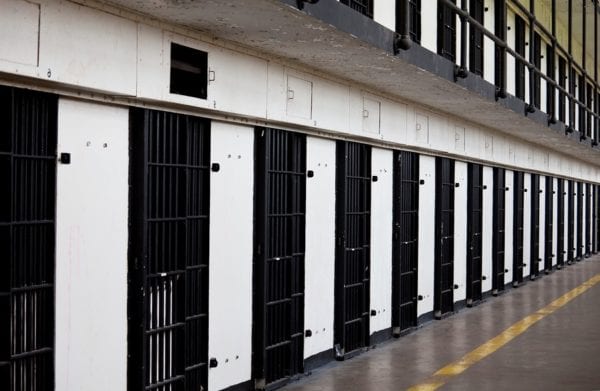Emergency Grievance Procedure – New Mexico Department of Corrections
Grievance Procedure Deadlines Run Very Fast
To begin, deadlines run very quickly on prison grievances. Think days not weeks. Obtain the procedures from the subject corrections facility and follow them closely. Because the deadlines run so quickly, Collins & Collins, P.C. does not get involved in the grievance procedure. Chances are the grievance procedure will have run prior to Collins & Collins, P.C. even having an opportunity to review the file or possible civil rights claims.
There is both a normal grievance procedure and emergency grievance procedure for New Mexico Department of Corrections (DOC) facilities. These may be different than non-DOC local or county facilities. Likewise, the Federal Bureau of Prisons has its own procedures. It is extremely important that the grievance procedure for the facility at issue is followed. This means obtaining the grievance procedure from the prisoner’s own facility. Failure to abide by the governing procedures, including meeting all deadlines, will likely bar future lawsuits under both Federal and New Mexico State Law.
What is an Emergency Grievance?
What is an “emergency grievance?” An emergency grievance is a complaint where there are indications of potential and substantial risks to the life or safety of an inmate, or when irreparable harm to the inmate’s health is imminent.
Facilities are charged with expediting emergency grievances for the protection of the prisoner.
Informal Grievance
Step 1: First the inmate needs to start an informal grievance. This is required for all grievances, except for a grievance alleging rape. The informal grievance needs to be filed within 5 working days of the incident that gives rise to the grievance. The inmate needs to explain the complaint that they have and asks for a remedy. There can only be one complaint per grievance. If the inmate receives a response in regards to the informal grievance that they are satisfied with, then the matter is closed. If the inmate receives a response that is unsatisfactory then he or she needs to file a formal grievance.
Formal Grievance
Step 2: An inmate needs to file a formal grievance within 5 working days of receiving their response to the informal grievance. In instances alleging rape, the inmate is expected to file the formal grievance as soon as possible. The formal grievance must be designated as a “grievance” on the envelope, and in cases of alleged sexual abuse by staff it needs to be marked as “emergency.” The contents of the emergency formal grievance must state the grievance is an emergency and demonstrate why the inmate is at substantial risk of harm were the grievance to be processed according to the regular timeline. The Grievance Officer will then investigate the inmate’s allegation and determine if the grievance is an emergency or not. The Grievance Officer must make a determination within 3 days of receipt of the grievance, or if regarding rape allegations within 48 hours.
During the grievance process, the inmate is to be protected from harm. This means that during the investigation the inmate may be placed in protective custody or transferred to another facility. This can occur if the inmate requests, or if the facility administration determines that it is appropriate for the inmate’s safety.
Once it has been determined that there is an emergency, the grievance will be immediately submitted to the Warden. If the Warden can correct the problem then the grievance is resolved. If, after an investigation, the Warden reviews the grievance and comes to the determination that the issue presented cannot be resolved at this level, then the inmate may appeal. Documentation must be attached to the appeal showing that a resolution is impossible.
Appeal to Department of Corrections
Step 3: If the grievance is not resolvable by the warden, then the inmate may file an Appeal to the Office of the Secretary of Corrections. That appeal must be filed within 5 working days of receiving the Warden’s decision, just like a normal grievance. After a response from the Office of the Secretary of Corrections, the inmate is deemed to have exhausted all of the administrative remedies and can pursue a case in court if they are unhappy with the result.
Exhaustion (Completion) of Grievance Process Required
Just as other grievances, exhaustion of the grievance process is required all the way through appeal. This means completing all stages. Failure to do so will likely, absent extraordinary circumstances, bar a subsequent lawsuit under the Federal Prison Litigation Reform Act and its New Mexico equivalent.
For a more thorough review of the rules:
New Mexico Department of Corrections Grievance Procedure
Navigating New Mexico Department of Corrections Grievance Process – Albuquerque Attorneys
Navigating New Mexico Department of Corrections Grievance Process – Albuquerque Attorneys The grievance procedure must be fully and properly completed by and inmate (rules do not apply to non-inmates) prior to filing a lawsuit. This is referred to as exhaustion of remedies. Failure to exhaust remedies will with very few exceptions bar a subsequent lawsuit in state or federal court.
Don’t Fight the Grievance System – Take What the Grievance System Gives You – The National Law Review If an inmate files a Section 1983 claim against you, one of the first issues your defense attorney will address is whether the inmate exhausted the facility’s grievance procedure before filing suit. If not, your attorney will file a motion with the …


